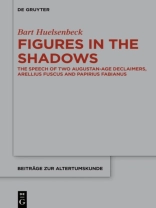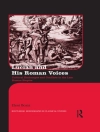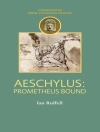The collection of the elder Seneca assembles quotations from scores of declaimers over a period spanning sixty years, from the Augustan Age through the early decades of the empire. A view is offered onto a literary scene, for this critical period of Roman letters, that is numerously populated, highly interactive, and less dominated by just a few canonical authors. Despite this potential, modern readings have often lumped declaimers together en masse and organizational principles basic to Seneca’s collection remain overlooked. This volume attempts to ‘hear’ the individual speech of declaimers by focusing on two speakers—Arellius Fuscus, rhetor to Ovid, and Papirius Fabianus, teacher of the younger Seneca. A key organizing principle, informing both the collection and the practice of declamation, was the ‘shared locus’—a short passage, defined by verbal and argumentative ingredients, that gained currency among declaimers. Study of the operation of the shared locus carries several advantages: (1) we appreciate distinctions between declaimers; (2) we recognize shared passages as a medium of communication; and (3) the shared locus emerges as a community resource, explaining deep-seated connections between declamation and literary works.
लेखक के बारे में
Bart Huelsenbeck, Ball State University, Indiana, USA.












